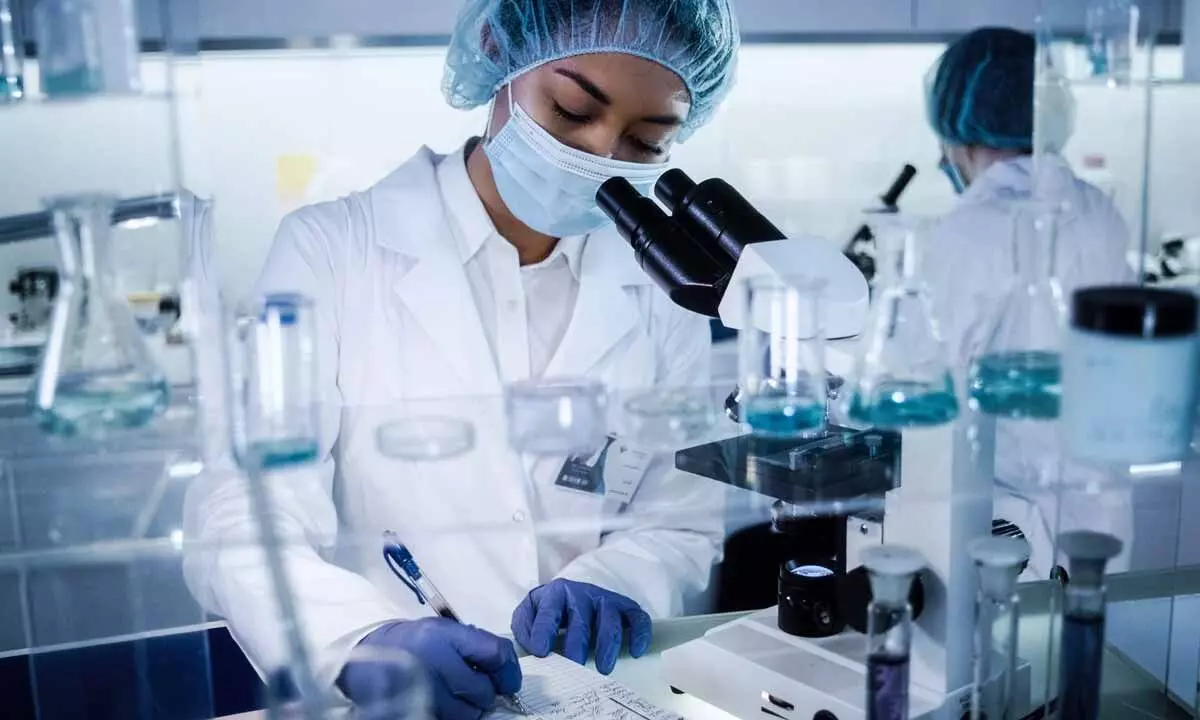Parl Panel suggests ways to promote R&D in pharma
Asks govt to start Research-Linked Incentive (RLI) scheme in line with PLI scheme to promote domestic production of APIs
image for illustrative purpose

In its latest report on 'Medical Devices: Regulation & Control', the Department-Related Parliamentary Standing Committee on the Union Ministry of Health and Family Welfare asked the Department of Pharmaceuticals (DoP) to invigorate the culture of research and development in medical devices in institutions like IITs, NITs and other academic institutions and it recommended to the Department to start RLI Scheme in line with the PLI scheme
Stressing the need to promote research and development (R&D) and innovation in the pharmaceutical and medical devices sectors in the country, a Parliamentary panel has recently recommended to the central government to start Research Linked Incentive (RLI) Scheme in line with the Production Linked Incentive (PLI) Scheme which was launched some time back to promote domestic production of active pharmaceutical ingredients (APIs). In its latest report on 'Medical Devices: Regulation & Control', the Department-Related Parliamentary Standing Committee on the Union Ministry of Health and Family Welfare asked the Department of Pharmaceuticals (DoP) to invigorate the culture of research and development in medical devices in institutions like IITs, NITs and other academic institutions and it recommended to the Department to start RLI Scheme in line with the PLI scheme.
It is sure that most of the high-end technology and innovative products originate from a well-developed ecosystem and innovation cycle. It is under this backdrop, the Parliamentary panel has asked the DoP to facilitate academia- industry partnership for undertaking research projects on industry challenges and incentivize the successful outcomes. There is surely a need to prioritizing and developing a robust funding mechanism to nurture an ecosystem for innovation for the medical devices industry. In this regard, the panel asked the DoP to have a dedicated corpus to fund startups and Small & Medium Enterprises (SMEs) undertaking research projects that aim for improving quality, efficiency of existing devices and other healthcare outcomes.
In line with the Central government's clarion call for making the country Atma Nirbhar (self-reliant) in the pharma sector, the DoP in July, 2020 had come out with a notification for Rs. 3,000 crore bulk drug parks' promotion scheme and Rs 6,940 crore PLI scheme for promotion of domestic manufacturing of critical key starting materials (KSMs)/drug intermediates (DIs) and active pharmaceutical ingredients (APIs) in India. Definitely, the PLI scheme for promoting domestic manufacturing of KSMs, DIs and APIs will go a long way in boosting domestic manufacturing of 53 bulk drugs, on which India is critically dependent on imports from China. Earlier, a committee on drug security constituted by the DoP had identified 53 APIs for which the country is heavily dependent on imports.
The list of 41 products contained in the scheme guidelines will enable domestic production of 53 bulk drugs. Under the scheme, financial incentives will be given to a maximum of 136 manufacturers selected under the scheme as a fixed percentage of their domestic sales of these 41 products manufactured locally with the required level of domestic value addition. The incentives would be subject to annual ceilings communicated in the approval letter. The incentives would be given for a period of 6 years. In the case of fermentation-based products, the rate of incentive is 20 per cent for the first four years, 15 per cent for the fifth year and 5 per cent for the sixth year. In the case of chemically synthesised products, the rate of incentive is 10 per cent for all six years.
It is a sad commentary that despite boasting of several IT hubs like Bengaluru, Pune, Hyderabad and Delhi-NCR, the desired ecosystem for manufacturing of highly advanced medical devices is yet to be fully developed in the country. SO, in order to encourage indigenous manufacturing of medical devices, the central government should provide incentives or encourage preferential purchase for domestically manufactured products in government procurement. In this regard, the Department should ensure that in all public procurement, the preference must be given to Indian manufactured medical devices having domestic content of at least 50 per cent.
Given the size of Government's (both Central and State) purchase, the Preferential Purchase Agreement would have a significant pull for a number of medical devices companies to manufacture medical devices in India. Also, the PLI scheme should be broad based and all the medical devices should be covered under the scheme. In yet another crucial recommendation, the Parliamentary panel also asked the DoP to facilitate regular interactions of biomedical engineers with leading physicians and manufacturers and thus encourage them to undertake research on medical devices. It is because biomedical engineers are integral to developing the ecosystem for research in medical devices in India.
These engineers are trained in the principles of physics and mathematical computation for the development of safe and effective medical devices that best fit the needs of medical providers and patients. However, biomedical engineers generally do not interface directly with patients to the same extent as physicians; therefore, biomedical engineers may not fully understand the specific needs of patients in the same way that medical professionals and manufacturers do. The panel has done its bit. It is over to the government now. It should come out with the RLI scheme to promote R&D and innovation in pharma and medical devices sectors.
(The author is freelance journalist with varied experience in different fields)

